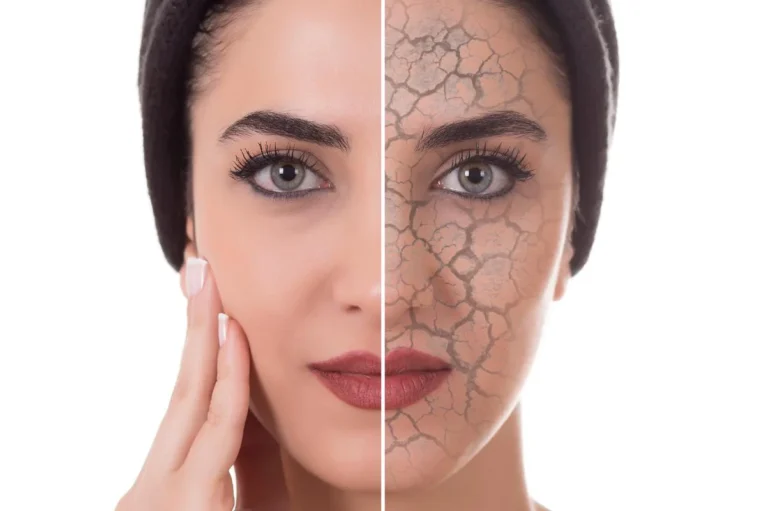Excessive Sweating? One Hidden Mineral Deficiency Could Be the Cause
Have you ever noticed that you sweat far more than your workout buddies? Or perhaps, you’re sitting in a conference when you suddenly feel wet under your arms. Sweating is perfectly normal, but if you sweat too much or notice odd changes in your sweating patterns there may be warning signs from your body like lack of magnesium. We’ll explain the connection between magnesium deficiency and sweating, how to recognize the symptoms, and most importantly how to treat it.
This One Mineral Deficiency Could Be Why You’re Craving Junk.
What Is Magnesium and Why Is It So Important?
Magnesium plays a crucial role in regulating bodily functions, it is like a “calming” mineral. Despite its essential role in over 300 biochemical reactions in a human body, magnesium deficiency is surprisingly common particularly among individuals who engage in excessive sweating activities or reside in hot and humid climates.
- Muscle relaxation and recovery
- Nerve function
- Sleep and mood regulation
- Heart health
- Energy production
- And yep temperature and sweat regulation
How Sweating Can Lead to Magnesium Deficiency
1. You Lose More Than Water When You Sweat
When you sweat, you’re not just losing water, you’re also flushing out important minerals like sodium, potassium, and magnesium from your body. Incase if you sweat a lot during workouts, in hot weather, or even when you’re stressed, magnesium in your body can quickly run low.
2. Signs You Might Be Losing Too Much Magnesium Through Sweat
A significant number of people especially athletes, fitness enthusiasts, and those leading a high-stress lives are always at a risk of magnesium deficiency without even realizing it. According to data from the National Institutes of Health (NIH), many adults fall short of meeting the recommended daily intake of magnesium and here are the symptoms.
- Excessive or “salty” sweating.
- Muscle cramps or twitching while working out.
- Extreme fatigue, even after rest.
- Irritability or anxiety.
- Poor sleep or frequent waking.
- Headaches or migraines.
How to Tell If Your Sweat Is Hinting at a Deficiency
1. “Salty” Sweat or White Stains on Clothes – You may be losing a lot of minerals, especially magnesium, if your workout clothes dry out with white salt rings.
2. Sweating More Than Others in the Same Conditions – If you feel like you are drenching in sweat while all the others are dry, your body may be overa-djusting for internal imbalances such as insufficient magnesium.
3. Sweating Without Physical Activity – If you feel you are sweating excessively even while resting , especially paired with fatigue or mood swings, can be a subtle magnesium red flag.
How to Replenish Magnesium Naturally
1. Here is a list of the Best Magnesium-Rich Foods that you must include in your diet.
- Spinach and kale.
- Avocados.
- Pumpkin seeds.
- Almonds and cashews.
- Dark chocolate.
- Black beans and lentils.
- Whole grains like quinoa or brown rice.
2. Magnesium Supplements
If your diet’s not cutting it, magnesium supplements can help but be sure to talk to a healthcare provider first. Look for forms like magnesium glycinate or magnesium citrate, which are gentle and well-absorbed. Check out our guide on . if you’re considering adding one to your routine.
Lifestyle Tips to Minimize Mineral Loss Through Sweat
- Hydrate smarter: Add a pinch of sea salt or use electrolyte powders during workouts.
- Time your workouts: Exercise during cooler parts of the day.
- Wear breathable fabrics: Helps regulate your temperature better.
- Consider a magnesium spray: Topical magnesium can absorb through the skin ideal for post-sweat recovery.
Don’t Ignore What Your Sweat Is Telling You
Your sweat can tell you more about your health than you might think. If you’re sweating more than usual or your body just feels off, it could be more than just bad luck with deodorant. It might be a magnesium deficiency. It’s easy to test, easy to treat, and the benefits go way beyond just controlling your sweat.
Conclusion
If you’ve been sweating excessively, battling fatigue, or constantly experiencing muscle cramps, don’t simply blame stress or dehydration. These symptoms could be your body’s subtle cry for help, and magnesium deficiency might be the missing link. Magnesium plays a crucial role in muscle function, energy production, and electrolyte balance. When its level drops, especially through sweat during intense workouts, hot weather, or high-stress situations, your body starts showing signs by releasing more sweat. It’s important to ensure your body is not running low on important minerals.






